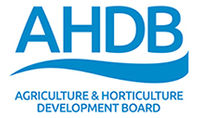

Agriculture and Horticulture Development Board (AHDB) services
Soils Management
The agricultural industry faces a considerable challenge in meeting increasing demand for food and alternative fuels, particularly because of the combined pressure to reduce environmental impact and adapt to climatic change. Maintaining resilient soils is central to meeting these challenges.
Manure Slurry Analysis
The nutrient content of solid manures and slurries can vary considerably from the typical values presented in Defra`s Fertiliser Manual (RB209), published in 2010. Given this variability and the increasing cost of manufactured fertiliser it is worthwhile analysing nutrient content of solid manures and slurries.
Slug Control
Slugs are a major pest of agricultural and horticultural crops which left unchecked can cause significant damage. A number of cultural control methods are employed but when conditions are difficult and these measures are not sufficient, chemical control options are a last resort. The most common crop protection product used in arable crops in the UK is metaldehyde-based slug pellets. Metaldehyde is often detected in raw water above the drinking water standard, with peaks following rainfall. While levels detected pose no danger to health or the environment, the UK’s environment agencies and Defra are responsible for the implementation of the Water Framework Directive. Unless action is taken, regulatory restrictions, or even withdrawal, may be enforced. Best practice advice on the application of Metaldehyde-based slug pellets, including guidelines on reduced rates and timings, has been produced by the Metaldehyde Stewardship Group (MSG) and is available.
Slug Control
Slugs are a major pest of agricultural and horticultural crops which left unchecked can cause significant damage. A number of cultural control methods are employed but when conditions are difficult and these measures are not sufficient, chemical control options are a last resort. The most common crop protection product used in arable crops in the UK is metaldehyde-based slug pellets. Metaldehyde is often detected in raw water above the drinking water standard, with peaks following rainfall. While levels detected pose no danger to health or the environment, the UK’s environment agencies and Defra are responsible for the implementation of the Water Framework Directive. Unless action is taken, regulatory restrictions, or even withdrawal, may be enforced. Best practice advice on the application of Metaldehyde-based slug pellets, including guidelines on reduced rates and timings, has been produced by the Metaldehyde Stewardship Group (MSG) and is available.
